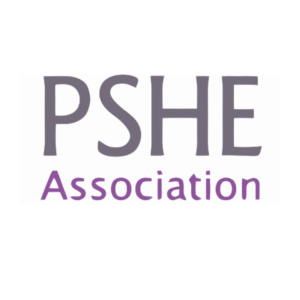Core Curriculum - PSHE / RSHE
Personal, Social, Economic and Health Education, PSHE, is a fundamental part of preparing our pupils to take their place as adults in the wider community. They are taught the knowledge, skills and attributes needed to manage conflicts, risks or challenges, and to make safe and healthy decisions that will impact them, and those around them, positively. We believe that ‘an effective PSHE programme can…tackle barriers to learning, raise aspirations, and improve the life chances of the most vulnerable and disadvantaged pupils’ (PSHE Association 2020). The development of independence skills, social and behavioural skills, and decision making skills are key to our teaching and learning at The Avenue. PSHE is not only crucial to this development, but also supports our pupils to learn and communicate about their health and wellbeing, relationships, and living in the wider world, preparing them for being an active and responsible member of society in the future.
Relationships/Sex Education and Health Education (RSHE), or for secondary-aged pupils Relationships/Sex Education, RSE, is delivered as part of a developmental PSHE programme. The overall aim of this curriculum to prepare pupils for their future and future relationships including, as appropriate, friends, boyfriends/girlfriends, partners, marriage and childcare, emphasising the caring, loving aspect of relationships and encouraging responsible attitudes and behaviour within them. Effective teaching of RSHE will also support pupils to understand boundaries, the roles of different people, and appropriate/inappropriate behaviour, so that they are more aware of personal safety, as well as what constitutes a negative relationship and what they can do if they need help. Through PSHE and RSHE pupils will learn about their bodies, personal care, appropriate and inappropriate touch, puberty, emotions, online safety, alcohol, medication, and death and loss. Further detail regarding sex education can be found in the Sex Education Policy.
An important part of our PSHE provision is the teaching and learning of Life Skills, practical skills required for daily living. It is essential for our pupils as it increases their autonomy and life chances as they grow up. Life skills include self care skills such as dressing, toileting and grooming as well as community based skills such as safe travel and shopping. When delivering life skills to our pupils, our goal is to enable each individual pupil to be as involved and independent as they can in their daily lives and in the local community. We include Work-Related Learning under the umbrella of PSHE/Life Skills. Through our differentiated Careers Programs, pupils on different pathways are supported to develop the engagement, knowledge, skills and understanding useful for both enterprise and employability. Whether through supported participation in a sensory-based enterprise, an employability lesson or internal/external work experience, we aim to engage and prepare our pupils for transition into adulthood and their future destination. For our younger pupils, not yet participating in statutory Careers Education, we offer Play and Leisure instead as the skills promoted through these activities, especially Communication / Interaction and Social/Emotional Development, not only enhance personal growth but also underpin successful participation in Work-Related Learning later on.


Our Curriculum Framework
At the heart of the curriculum is the PSHE Association SEND Framework which identifies meaningful outcomes in small steps and progressive stages and includes six different sections/strands. The granular progression in the outcomes allows an individualised PSHE / RSHE/RSE curriculum to be built for each pupil.
1. Self-Awareness (Me, who I am, my likes, dislikes, strengths and interests)
2. Self-care, Support and Safety (Looking after myself and keeping safe; aspects of Relationships and Sex Education.)
3. Managing Feelings (Understanding feelings, and that how I feel and how others feel affects choices and behaviour; aspects of Relationships and Sex Education)
4. Changing and Growing (How I and others are changing; new opportunities and responsibilities; aspects of Relationships and Sex Education)
5. Healthy Lifestyles (Being and keeping healthy, physically and mentally)
6. The World I Live In (Living confidently in the wider world)
